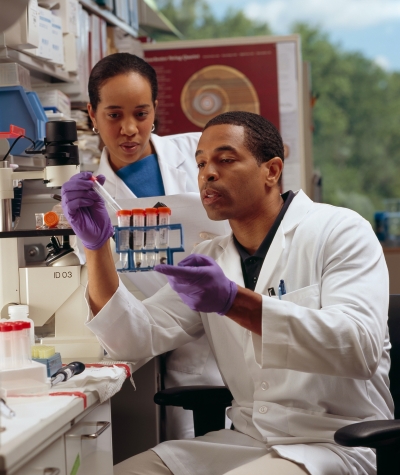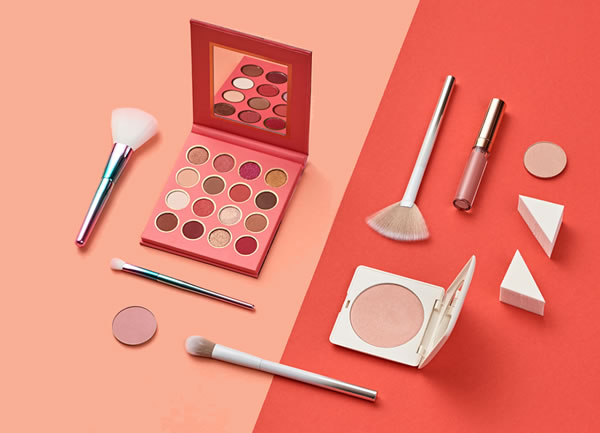Cosmetic products sold in the UK and Europe are not tested on animals. This is true whether or not the product makes an 'animal friendly' claim.
The ban on animal testing of cosmetic products in the UK and EU came into effect in September 2004. It has been illegal to test cosmetic products on animals in Europe since that time.
The bans under the UK and EU Cosmetics Regulations mean that for cosmetics sold in the UK, neither cosmetic products nor their ingredients can be tested on animals anywhere in the world, if the testing is done to meet the requirements of these laws.
In the UK, testing of cosmetic products was banned in 1997 after a voluntary initiative by industry which led to all licences for testing cosmetic products to be withdrawn.
How do we assure safety of cosmetic products?
All cosmetic products, and their ingredients, are required to be safe. Not only is there a legal obligation, cosmetics manufacturers also have a moral obligation to produce only safe products. It is important to the cosmetics companies that customers have confidence in the safety of the products they use. Every product must undergo a safety assessment before it can be placed on the market.
The safety assessment of a cosmetic product is based on the safety profile of its ingredients. The majority of products are made from ingredients that have a well-established safety record. Since the safety of the finished product can be assessed based on the safety of its ingredients, there is no need to test finished products on animals.
Industry's efforts are based upon five key principles:
Commitment
The cosmetics industry has a long-standing commitment to the replacement of animal testing and plays a leading role in the development of animal-free science by dedicating funding, time, resources and scientific expertise to this area of research.
Contribution
The industry is a global pioneer in research into methods that do not use animals and is proud of its investment and success in developing alternatives to ensure human safety.
Significant scientific advancements have already been made and the cosmetic industry's efforts have so far led to more than 20 alternative test methods being developed, validated and adopted by OECD (Organisation for Economic Co-operation and Development). These are available to all industries to be used in the place of animal tests. Research into alternatives is by no means complete and further efforts are focused on developing alternatives to replace the more complex 'long-term' tests. This doesn’t change the fact that these ‘long-term’ animal tests are still banned for cosmetic ingredient and product testing.
As well as over 20 years of expertise from the cosmetics industry’s best scientists in researching alternative methods, the cosmetics industry is committed to long-term funding of research into animal-free methods. In 2011, member companies of the European cosmetics industry trade association, Cosmetics Europe, dedicated 25 million Euros to a research programme for developing alternative approaches for systemic toxicity testing (SEURAT-1). The European Commission matched this amount, taking the total sum of this joint investment to 50 million Euros.
In 2016, Cosmetics Europe launched its Long Range Science Strategy (LRSS), which has since invested over 17 million Euros to advance animal-free safety assessment of cosmetics.
A global commitment
This dedication to replacing animal testing continues in the International Collaboration on Cosmetics Safety (ICCS), which is a global cosmetics industry initiative which brings together cosmetics manufacturers and suppliers, industry associations and animal protection organisations to drive greater global awareness and confidence in animal-free science through research, education and regulatory engagement. The ICCS is working towards a world where animal-free methods are accepted and used universally to demonstrate the safety of cosmetics for both humans and the environment.
Collaboration
The cosmetics industry has been researching methods that do not use animals for over 20 years. Collaboration between cosmetics companies, regulators, academics and other industry sectors is essential to the effective development of animal-free methods. This collaboration is evidenced in partnerships such as the European Partnership for Alternatives to Animal Testing (EPAA) and the International Collaboration on Cosmetics Safety (ICCS).
The cosmetics industry is not the only industry sector to benefit from the development of alternatives. Scientists from other industry sectors such as the pharmaceutical, chemical and food industries are all legally obliged to use non-animal alternative methods where they exist.
Global collaboration
The International Collaboration on Cosmetics Safety (ICCS) promotes the use of non-animal alternatives internationally by working closely with its partners in other world markets such as the United States, South America, Canada, Japan and China.
The UK Home Office, the European Commission and the European cosmetics industry are working very closely with the Chinese authorities to explain the way companies in the UK and EU confirm the safety of their cosmetic products without the use of animal testing and to showcase the success of the cosmetics industry in replacing animal testing with alternatives and the progress being made by the wider scientific community, as well as exploring the growing confidence in China over their use and adoption. New cosmetics legislation in China which came into force in 2021 no longer requires animal testing for many types of cosmetic products.
Co-operation
The cosmetics industry has been working towards the elimination of animal testing for cosmetics for a long time and the bans on animal testing of cosmetic products and their ingredients have now been in place under cosmetics laws for over a decade. CTPA actively campaigned for these bans to be retained under UK law for cosmetics after Brexit. There are still major scientific challenges in fully replacing animal testing for all purposes and the industry will continue to work closely with its key partners to address these, for the benefit of all industry sectors.
Confidence
The cosmetics industry is dedicated to taking part in the huge scientific challenge of developing animal-free methods. Animal testing is banned for cosmetic ingredients and products in the UK and the industry is confident that, in time, research efforts will allow for a wider variety of new animal-free testing methods to be developed which will increase innovation in cosmetic products and ingredients, without the need for animal testing.
Where can I find out more?
For information on the progress of replacement of animal testing in China, see information from the Department for Business and Trade about the China Cosmetics and Beauty Market.
For more information about replacing animals in experimental research visit the FRAME (Fund for the Replacement of Animals in Medical Experiments) website.
Find out more about the Cosmetics Europe research programme on alternatives to animal testing and the Long Range Science Strategy (LRSS).
Find out more about how the International Collaboration on Cosmetic Safety (ICCS) is advancing animal-free safety assessment for cosmetics.

